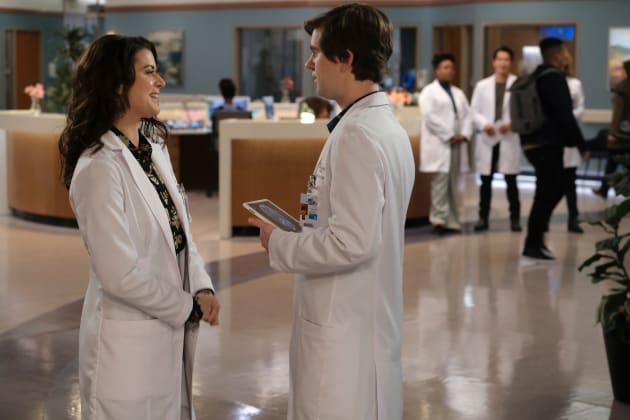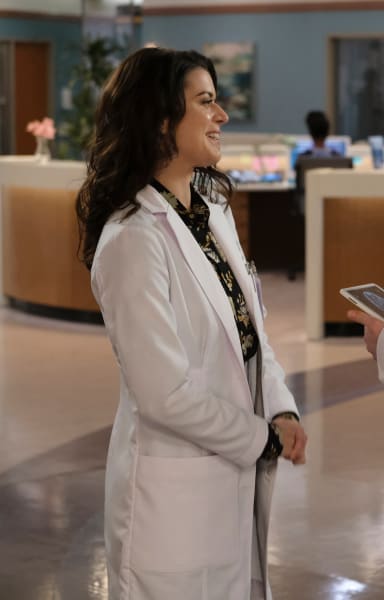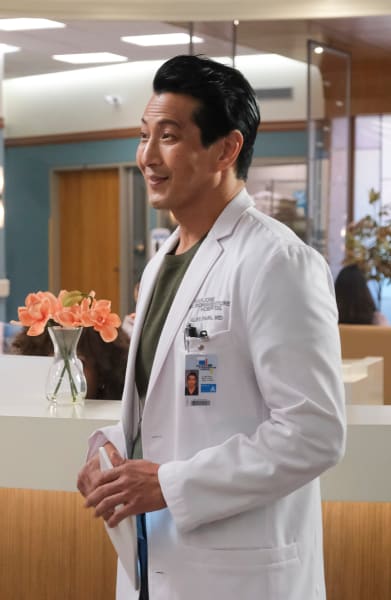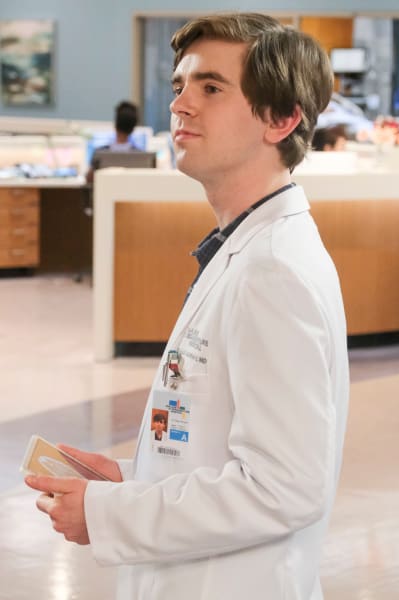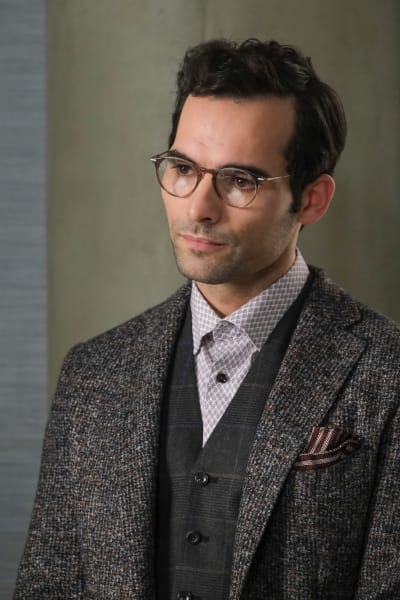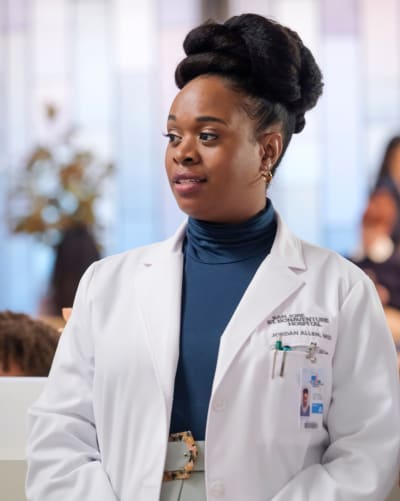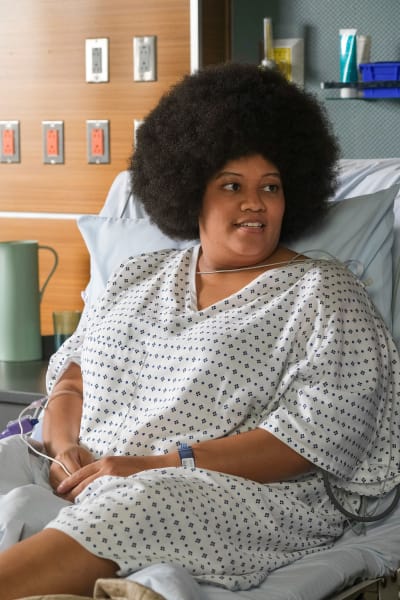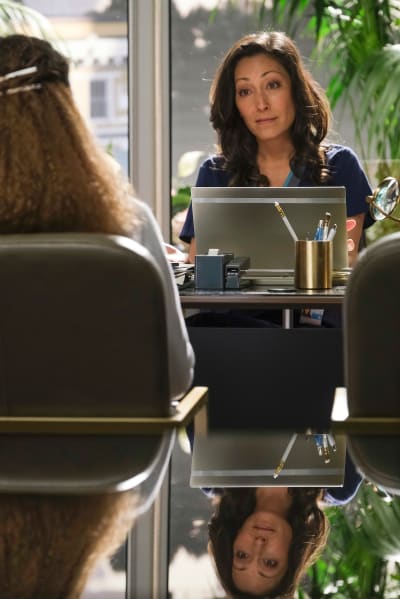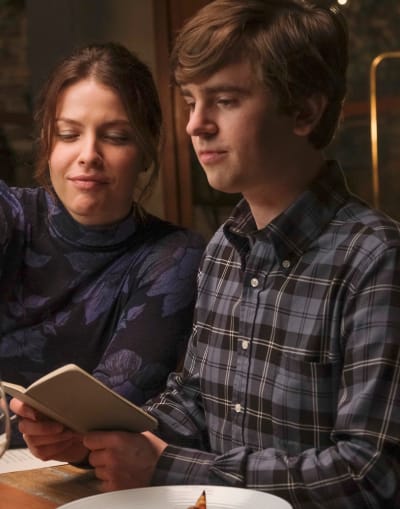As a transgender man, I often have mixed feelings when TV shows feature trans people.
Sometimes it’s done well, but transgender characters are written inaccurately and perpetuate stereotypes more often than not.
The Good Doctor Season 4 Episode 9 did a better job than most, though there were some serious issues.
First, kudos to this show for hiring a transgender actor to play Rio.
In too many cases, cisgender actors are chosen to play transgender characters, and they don’t always fully understand the character they’re playing.
It’s hard to imagine the feelings that go along with having a gender identity that doesn’t match your chromosomes or your secondary sex characteristics. It’s not something that can be easily explained if you haven’t lived it.
So, it was refreshing for The Good Doctor to have chosen an actor who has lived that experience to play a character who has.
Nevertheless, there were some missteps here that rubbed me the wrong way.
Shaun: What makes something a man? I used to think it was the chromosomes but it doesn’t seem so. I know that Rio was uncomfortable –
Lim: Life is uncomfortable. You just muscle through it.
The most egregious problem was Shaun’s attitude. Kind of, anyway.
In some ways, his beliefs were typical of people who have never encountered a transgender person, and because he has Autism, he is prone to classifying things in absolute terms.
But I felt uncomfortable with it for a couple of reasons.
First, many people with Autism reject traditional ideas about gender. They don’t see a reason for societal rules about gender expression or relating certain behaviors to certain genders.
So, Shaun could have just as easily been more accepting of Rio’s gender identity than other people, and I felt like, in some ways, he was being used as a mouthpiece for transphobic ideas.
His Autism didn’t have to mean that he blurted out that Rio had girl parts. He could have been inappropriately curious without veering off in that direction.
Shaun: I read that cisgender people often reduce transgender people to their genitalia and it is offensive. Did I do that to you and Rio?
Eli: Yes.
Shaun: I am sorry I did that. Rio will be going into surgery soon. He has been calling you but you have not been answering the phone.
Eli: Thank you.
Shaun: Rio is confusing to me too. He has worked so hard. He had a bilateral mastectomy and is on hormone replacement therapy. Yet he is choosing the most female thing to do.
Eli: It’s not female if Rio does it.
Yet, he was willing to learn and change his attitudes, which is not easy for anyone — especially someone with Autism. So I can’t entirely fault The Good Doctor for that.
But ultimately, it fell to Rio’s fiance to educate Shaun about transgender issues, and anyone who is either transgender or has a partner who’s transgender can attest to how exhausting that is.
I also wasn’t happy with Lim’s response to Shaun’s musings about how difficult life must have been for Rio.
I get that her insistence that you get through the hard stuff had more to do with her PTSD than anything else. Still, it also inadvertently sent the message that transitioning rather than just pushing through your gender dysphoria is a sign of weakness.
Not cool.
Rio’s medical dilemma was interesting in its own right, transgender issues aside. The idea that a pregnant person had to choose between having an abortion or risking a much worse situation with their cancer was fascinating.
I felt like he switched abruptly from wanting to terminate because he’d have to go off T to being gung-ho to have this baby. Eli also changed from being happy they were having a baby together to feel that termination was the best solution.
That was never adequately explained, and it made me feel like they were in a rush to have a story about a pregnant transgender man.
Some trans men get pregnant and/or want to be pregnant. Often, they have a hard time medically because pregnancy is considered a female issue, in addition to having to go off testosterone and possibly go onto estrogen to make pregnancy possible.
While it’s theoretically possible to get pregnant by missing one or two doses of T, it’s not likely, and I found it unrealistic that a man who struggled with gender dysphoria would forget a shot or two.
I’ve forgotten to take mine from time to time… for about six hours, and then I’m in a rush to do it to make sure that I don’t experience any unwanted side effects from being late.
In any case, The Good Doctor touched on the issues pregnant trans men face but didn’t explore any of them fully, and that was a shame.
Of course, this patient only took up a third of the air time, and there was an equally important story going on: institutional racism in the hospital.
I thought that having Claire come to terms with her own internalized racism was an interesting choice that hopefully makes viewers think a little deeper about racial issues.
At this point, I think many people expect stories in which white people treat people of color inappropriately, but white privilege affects EVERYONE, and internalized racism isn’t addressed nearly as much.
As.a white person myself, I don’t feel qualified to say much beyond that. I don’t want to make assumptions about other people’s lived experiences, just like I wouldn’t want people to make assumptions about my experiences as a transgender person.
But I did think this was an important story to tell, and I thought Claire’s question at the end was powerful. After everything that happened, she wondered whether it was possible to succeed as a doctor of color without acting to “make white people comfortable.”
I’m curious as to how this will affect her moving forward.
We also got some real movement in Dr. Lim’s PTSD storyline.
This was another story I had mixed feelings about. It is SO common on television to promote the attitude that needing therapy means you’re weak, and it felt to an extent like The Good Doctor was going there.
I think the point was for Lim to realize on her own that everyone was right and she needed help, but it’s hard to give any show the benefit of the doubt when there is so much stigma associated with mental illness.
I also wasn’t sure about Lim’s attitudes about what therapy would mean for her reputation as a non-white person in a position of power.
I don’t know what it’s like for an Asian cisgender woman to be in a leadership role, and I certainly wouldn’t want to deny anyone’s experiences with racism and sexism.
But in Lim’s case, it felt somewhat like an excuse.
First, she couldn’t get therapy because she doesn’t have the privilege of needing help while being in a leadership role. Then, it’s fine for Claire because residents can apparently get away with it, but bosses can’t, especially not if they’re female.
Then, Andrews is calling her crazy by suggesting she needs to take a step back.
It was hard to tell what was in her head, what was because of her experiences with discrimination, and what was a little of both.
I’m glad Lim finally decided to get help, though, and I hope that nobody thought she was capitulating by doing so.
The way she froze up in the OR could have been dangerous for the patient, and I think she realized that.
I’m also surprised that ER doctors aren’t required to go to a support group at the hospital. When I worked on a crisis line, we had to attend a group once a month as part of the job because of the risk of PTSD or other serious mental health issues related to dealing with people in crisis.
Finally, there was some silly Shaun/Lea stuff to balance out the serious storylines.
I still don’t think Shaun’s feelings for Lea when he was with Carly meant anything more than his feelings for Dr. DeSouza meant now.
And Lea’s solution was ridiculous. I wish Glassman had been there to explain to Shaun that most people feel sexual attraction for all sorts of people and that it doesn’t mean anything is wrong with the relationship.
Your turn, The Good Doctor fanatics!
Hit the big, blue SHOW COMMENTS button and share your thoughts about the important issues this episode raised.
Want to refresh your memory first? Just watch The Good Doctor online right here on TV Fanatic!
The Good Doctor airs on ABC on Mondays at 10 PM EST/PST.
Jack Ori is a senior staff writer for TV Fanatic. His debut young adult novel, Reinventing Hannah, is available on Amazon. Follow him on Twitter.
